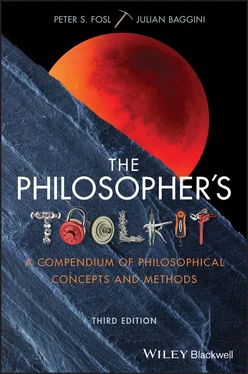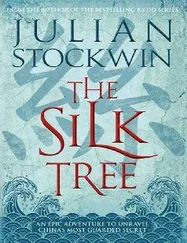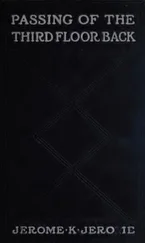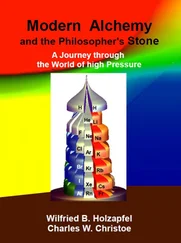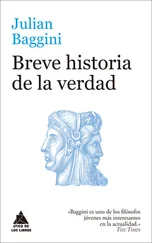Often, philosophers attempt to figure relatively perfect definitions by thinking through both the sufficient and necessary conditions for using a concept or term. Elaborating (perhaps not terribly well) on Aristotle’s famous definition, one might formulate the sufficient and necessary conditions for being a human by saying that something is ‘human’ if and only if it’s a rational, risible, fine‐haired, bipedal primate (see 4.17). Another way to think of a definition is as a special kind of definite description , a formulation that well describes what it defines (4.14).
As a general rule, it’s better if your definition corresponds as closely as possible to the way in which the term is ordinarily used in the kinds of debates to which your claims are pertinent. There will be, however, occasions where it is appropriate, even necessary, to coin special uses through what philosophers call stimulative definition . This would be the case where the current lexicon is not able to make distinctions that you think are philosophically important. For example, we do not have a term in ordinary language that describes a memory that is not necessarily a memory of something the person having it has experienced. Such a thing would occur, for example, if I could somehow share your memories: I would have a memory‐type experience, but this would not be of something that I had actually experienced. To call this a memory would be misleading. For this reason, philosophers have coined the special term ‘quasi‐memory’ (or ‘q‐memory’) to refer to these hypothetical memory‐like experiences.
Historically, many philosophical questions are, in effect, quests for adequate definitions. What is knowledge? What is beauty? What is the good? Here, it’s not enough just to say, ‘By knowledge I usually mean something like …’. Rather, the search is for a definition that best articulates the concept in question and does so in as general or universal a way as possible. Much of the philosophical work related to definition takes the form of conceptual analysis or the attempt to unpack and clarify the meanings of important concepts. What is to count as the best articulation or a proper analysis, however, requires a great deal of debate. Indeed, it’s a viable philosophical question as to whether or not many philosophy concepts actually can be defined. Perhaps some concepts are so complex that they can’t be compressed into a reasonably compact formulation. Perhaps the best that can be done is to become familiar with their usages by just diving into the network of philosophical theory in which they appear.
Many philosophers have not been deterred. For some that’s because of their philosophical commitments concerning the nature of reality and human epistemic powers. Ancient and medieval thinkers (like Plato and Aquinas), for example, seem to have been confident about the project of formulating adequate definitions because they were committed to the idea that reality includes essences or natures that exist independently of us and that define what things truly are (4.12). Moreover, these thinkers were convinced that human beings possess the capacity to apprehend those essences and formulate them in language. Many more recent thinkers (like some pragmatists and post‐structuralists) have held that definitions are nothing more than conceptual instruments that organise our interactions with each other and the world. That is so because recent philosophy has in large measure abandoned the idea that human language can meaningfully formulate real, independent essences or even that such essences exist.
The labor of analysing concepts has been related too to philosophical criticisms of philosophy itself. Some thinkers have gone so far as to argue that virtually all philosophical problems are at the end of the day rooted in nothing more than failures to understand how ordinary language functions. Resolving those puzzles, from this point of view, entails clarifying the way we use language so as to eliminate the confusions upon which philosophy generates its conundrums. While, to be accurate, this project demands more than just scrutinising definitions, it does show just how deep the philosophical preoccupation with getting language right runs.
1 3.9 Criteria
2 4.14 Knowledge by acquaintance/description
3 4.17 Necessary/sufficient
4 5.9 Signs and signifiers
* Plato (c.428–347 BCE). Dialogues Meno, Euthyphro, Theaetetus, and Symposium
Richard Robinson (1950). Definition
Ludwig Wittgenstein (2953). Philosophical Investigations, §43, §§65–66
Nuel Belnap (1993). On rigorous definitions. Philosophical Studies, 72(2/3): 115–146
1.11 Certainty and probability
Seventeenth‐century French philosopher René Descartes (1596–1650) is famous for claiming he had discovered the bedrock upon which to build a new science that could determine truths about the world with absolute certainty. The bedrock was an idea that could not be doubted, the cogito (‘I think’) – or, more expansively, as he put it in Part 1, §7 of his 1644 Principles of Philosophy , ‘I think therefore I am’ ( ‘cogito ergo sum’ ). Descartes reasoned that it is impossible to doubt that you are thinking, for even if you’re in error or being deceived or doubting, you are nevertheless thinking; and if you are thinking, you exist.
Ancient Stoics like Cleanthes (c.331–c.232 BCE) and Chrysippus (c.280–c.207 BCE) maintained that there are certain experiences of the physical and moral worlds that we simply cannot doubt – experiences they called ‘cataleptic impressions’. Later philosophers like the eighteenth century’s Thomas Reid (1710–96) believed that ordinary experience is improperly doubted and that God guarantees the veracity of our cognitive faculties. His contemporary, Giambattista Vico (1688–1744), reasoned that we can be certain about things artificial or human but not about the non‐human, natural world. More recently, the Austrian philosopher Ludwig Wittgenstein (1889–1951) tried to show how it simply makes no sense to say that one doubts certain things. Some purported doubts (e.g. about whether the external world exists) are, according to Wittgenstein, meaningless.
Others have come to suspect that there may be little or nothing we can know with certainty and yet concede that we can still figure things out with some degree of probability . Hellenistic Academic sceptics such as Arcesilaus (c.240–c.315 BCE) and Carneades (214–c.129 BCE) seem to have argued for this view. Before, however, you go about claiming to have certainly or probably discovered philosophical truth, it will be a good idea to give some thought to what each concept means.
Certainty is often defined as a kind of feeling or mental state (perhaps as a state in which the mind believes some X without any doubt at all). But defining certainty this way offers only a psychological account of the concept, and a psychological account fails to define when we are properly warranted in feeling this way. A more philosophical account of certainty would therefore add something about that sort of warrant – perhaps with the idea that a proposition may be properly accepted as certainly true when it is impossible for it to be false; alternatively, it may be properly accepted as certainly false when it is impossible for it to be true. Sometimes propositions that are certain in this way are called necessarily true and necessarily false (1.12).
Читать дальше
